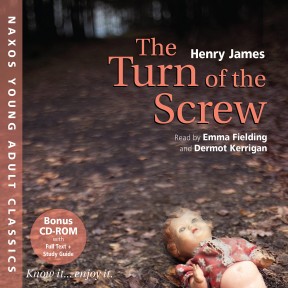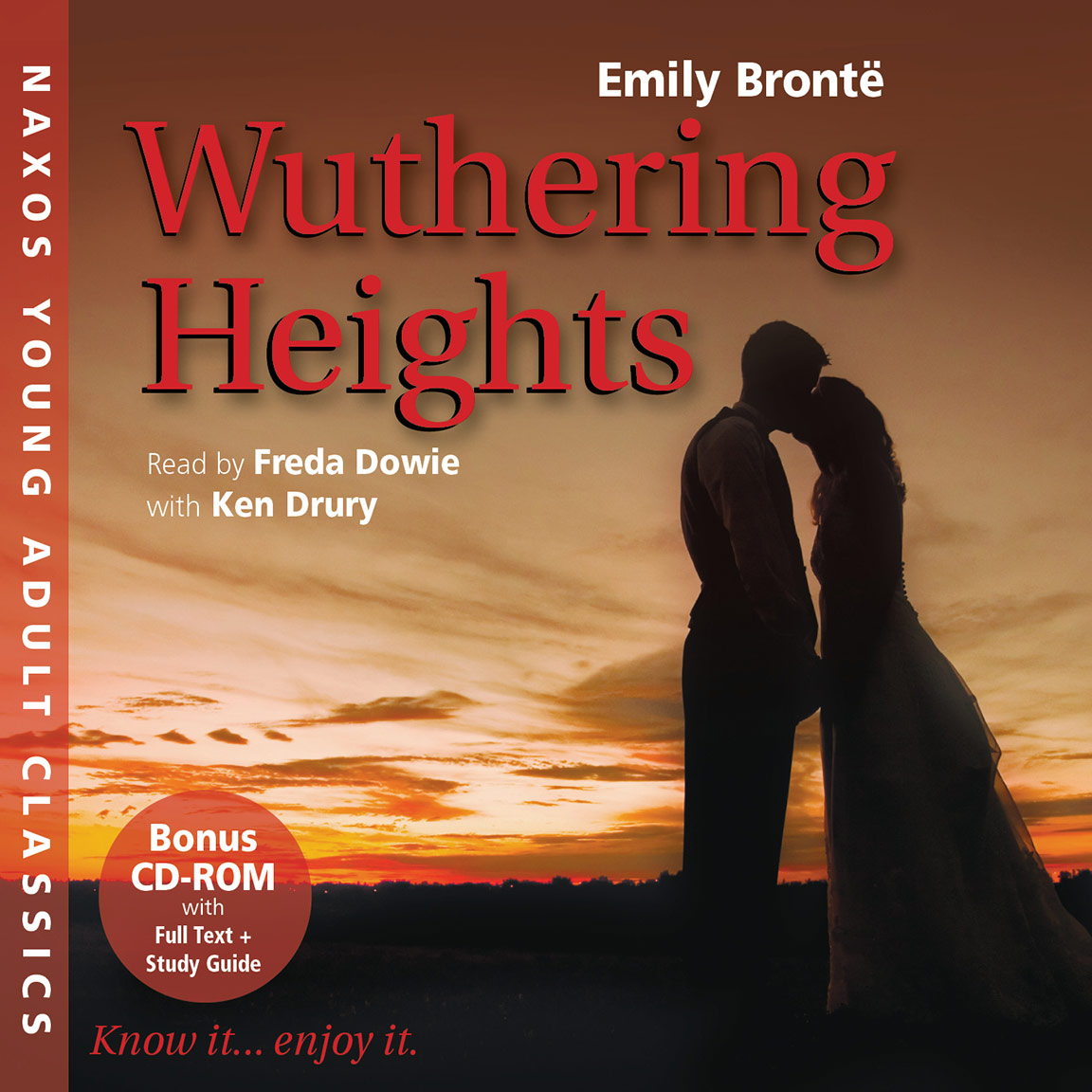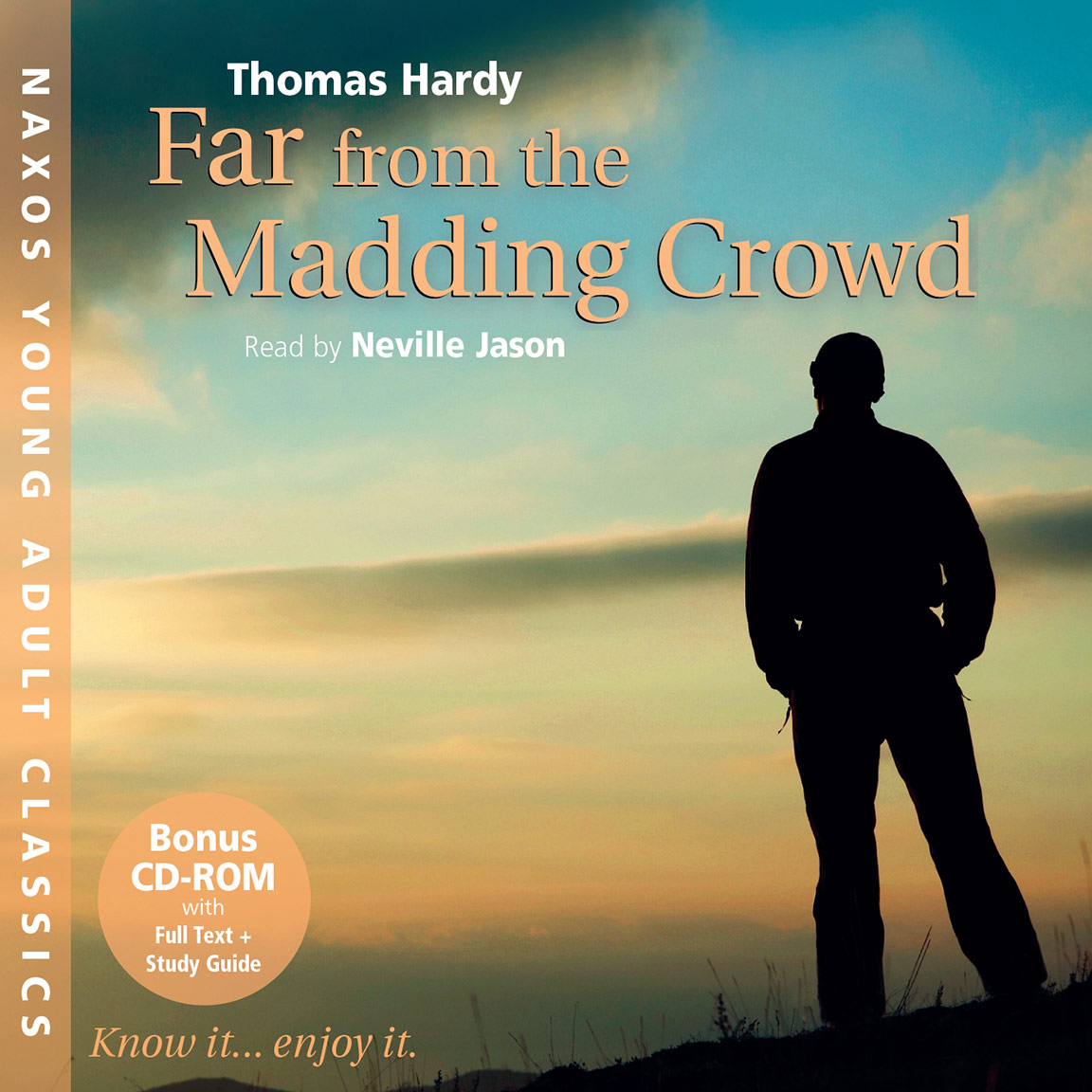
Audio Sample
Henry James
Young Adult Classics – The Turn of the Screw
Read by Emma Fielding & Dermot Kerrigan
abridged
Released in our new ‘Young Adult Classics’ format, Henry James’s classic ghost story is a masterpiece of the supernatural. The tale is taken from the diary of a governess, who describes her mounting sense of paranoia at the relationship between her two wards and the ghostly figures that haunt the estate. Menacing, ambiguous and haunted by a pervading sense of evil, The Turn of the Screw is one of the most powerful and enduring tales of the nineteenth century. Emma Fielding gives a compelling reading of a story in which nothing is certain, and madness lurks around every corner.
-
2 CDs
Running Time: 2 h 32 m
More product details
ISBN: 978-962-634-999-1 Digital ISBN: 978-962-954-895-7 Cat. no.: NA299912 Download size: 37 MB BISAC: YAF009000 Released: August 2009 -
Listen to this title at the Naxos Spoken Word Library↗
Due to copyright, this title is not currently available in your region.
You May Also Enjoy
Booklet Notes
WHY STUDY LITERATURE?
The famous Greek philosophers Plato (427–347 BC) and Aristotle (384–322 BC) first clashed when answering this age-old question. Plato felt that literature should be banned. He believed that it was a poor copy of the real world and inflamed people to do stupid and wild things in the manner of its heroes. But Plato’s pupil Aristotle argued that far from corrupting our minds literature actually improves us, enabling us to become more moral by making us feel both pity and fear for its central characters.
The argument today remains more or less the same. Literature’s detractors believe it can lead us astray by making us feel sympathy for evil characters, while literature’s defenders take Aristotle’s view that by feeling for fictional characters we become better people, better at empathising and imagining ourselves in different situations.
As a teacher and lover of literature, I take Aristotle’s view: literature takes us to places that we would never otherwise experience. And reading about murderers doesn’t mean we will imitate them; we may actually learn from their grave errors. Literature affords us the chance to live through other people’s tragedies and triumphs, as a result of which we ourselves may emerge wiser, more thoughtful and happier than before.
Francis Gilbert
HENRY JAMES’S LIFE
1843 Born 15 April in New York. His family was wealthy, and his father was one of the best-known intellectuals in America, whose friends included Thoreau, Emerson and Hawthorne.
c. 1853 Travelled abroad, studying in Geneva, London, Paris, Bologna
and Bonn.
1862 Eager to do something other than being ‘just literary’, he briefly attended Harvard Law School, but then decided to become a full-time writer. His brothers Wilky and Bob enlisted in the Union Army.
1865 President Lincoln assassinated on Henry’s 22nd birthday.
1867 Met Dickens at a dinner party. Described it as ‘a confrontation with [his] own future’, hoping that one day he would also be ‘the representative of both art and life’.
1871 Watch and Ward, his first full-length work of fiction, published.
1876 Moved from Paris to London, believing that English–American subjects would be more productive for his writing than
French–American.
1879 Daisy Miller, in which a young girl finds that her American values conflict with European sophistication, published.
1881 The Portrait of a Lady, again about an American girl who suffers
from her own provincialism whilst travelling Europe, published.
1886 The Bostonians, set in the time of the rising feminist movement, published.
1897 What Maisie Knew published.
1898 The Turn of the Screw, a ghost story, published.
1902 The Wings of the Dove, in which an inheritance destroys a young couple’s love, published.
1903 The Ambassadors published.
1905 Visited America for the first time in 25 years.
1906–10 Revised many of his tales and novels for the New York edition
of his complete works.
1913 A Small Boy and Others, his autobiography, published.
1914 Notes of a Son and Brother, a continuation of his autobiography, published.
1915 Shocked by the outbreak of World War I, he declared loyalty to
his adopted country by becoming a British citizen, and protested
at the US’s refusal to enter the War.
1916 Died 28 February in Rye, three months after suffering a stroke.
1917 The Middle Years, the third volume of his autobiography,
published posthumously.




